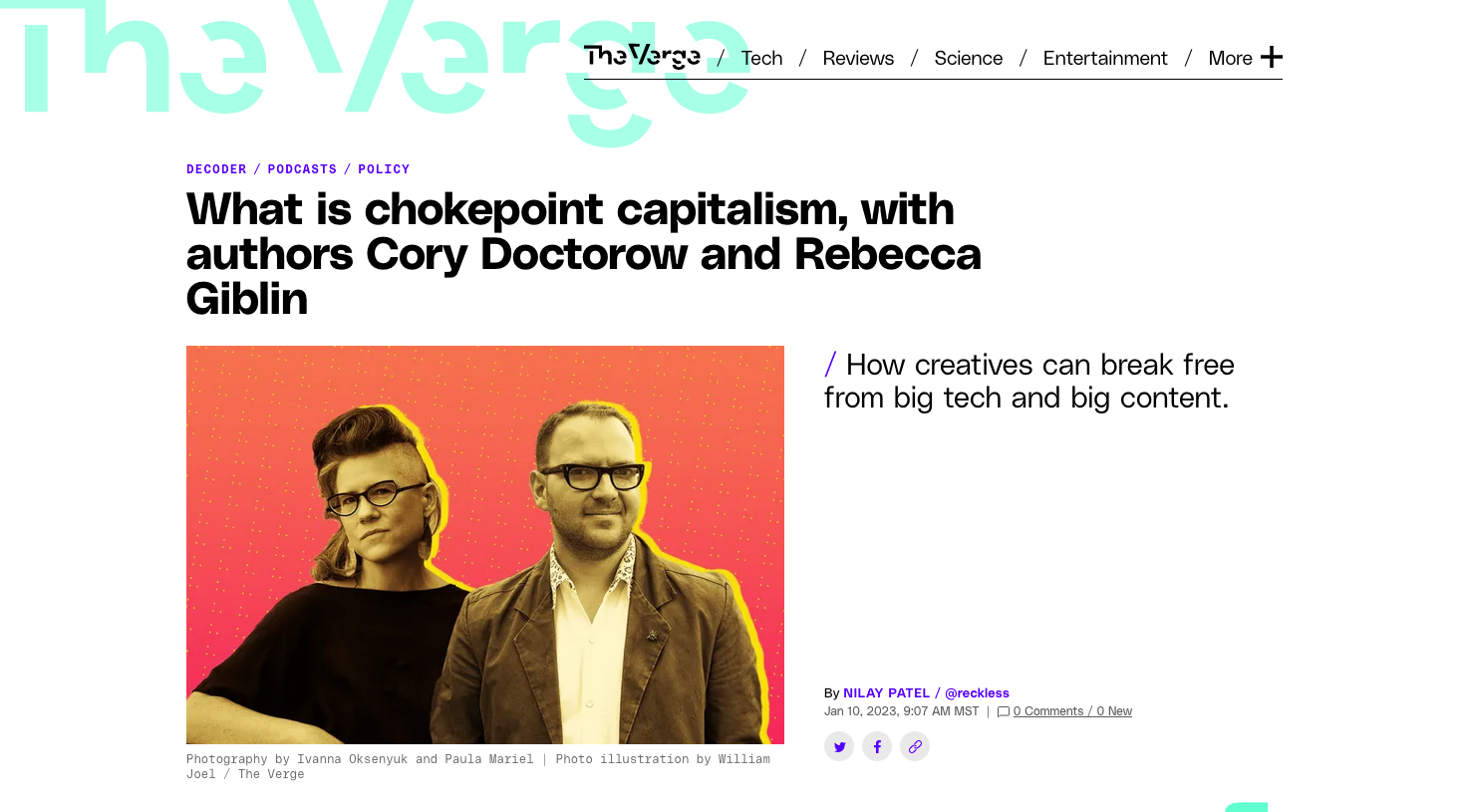Book News: What is chokepoint capitalism?
With this post being the first to serve double duty for a library school course – part of a “current news e-book or website” assignment for LIS 591 Publishing for our Head Alien – our inaugural article and topic of the week is a broad discussion of the relationship between publishing and contemporary society.
With our video lecture this week touching on themes such as the role of the underlying print technology on publishing, and the fine line between curation and gatekeeping, I came across the following article that is technically the transcript for a podcast episode (and includes the full podcast audio as well, if listening to this content would work better for you). “What is chokepoint capitalism, with authors Cory Doctorow and Rebecca Giblin: How creatives can break free from big tech and big content” shares some of the highlights and ideas from their book Chokepoint Capitalism: How Big Tech and Big Content Captured Creative Labor Markets and How We'll Win Them Back, published (somewhat ironically, I think, given the overall topic) by Penguin Random House in September 2022, which are very relevant to our topic at hand.
The article consists of an interview with the authors in which they share some of the case studies that they explore in more detail in their book. The topics discussed cover more than just publishing to also explore other cultural industries such as video game streaming, the music industry, concert ticket sales, and movie streaming services. But importantly for the study of book publishing, it also goes into the underlying technical/digital infrastructure that is in many ways common across media types, as well as questions of copyright and DRM that also impact the whole of the cultural industries sector. In a similar way that the Gutenberg press caused fundamental shifts in the distribution and impact of cultural materials in the 1400s, control of bandwidth and digital distribution channels are having a similar impact and role now.
Specifically to publishing, they bring up the example of audiobooks as distributed through Amazon-owned Audible as an example of a chokepoint in the distribution, and monetization, of cultural materials. Especially hilariously, to me at least, they share that they kickstarted the audiobook version of Chokepoint Capitalism specifically so that would not have to sell it on Audible, but then have also packaged a portion of the book as a standalone audiobook with the result that “the only part of the book that you can get on Audible is the part that describes the scam that is Audible” (Doctorow quoted in Patel 2023).
The closing discussion of copyright also very directly references book publishing, including some interesting commentary on some of the broader implications of international copyright treaties, which the authors make clear that they do not like.
I think this article provides a useful backdrop against which to explore the more specific publishing questions that we will be exploring in the coming weeks of this class, and ongoing in the stacks here at the Butterflies & Aliens Library of Literary Eccentricities & Rarities.
Happy… pondering?
– Winston
Works Cited
Oliphant, Tami. (2023, January 16). Publishing and contemporary society [Video]. eClass. https://eclass.srv.ualberta.ca/
Patel, Nilay. (2023, January 10). What is chokepoint capitalism. The Verge. https://www.theverge.com/23547877/decoder-chokepoint-capitalism-cory-doctorow-rebecca-giblin-spotify-ticketmaster-antitrust


